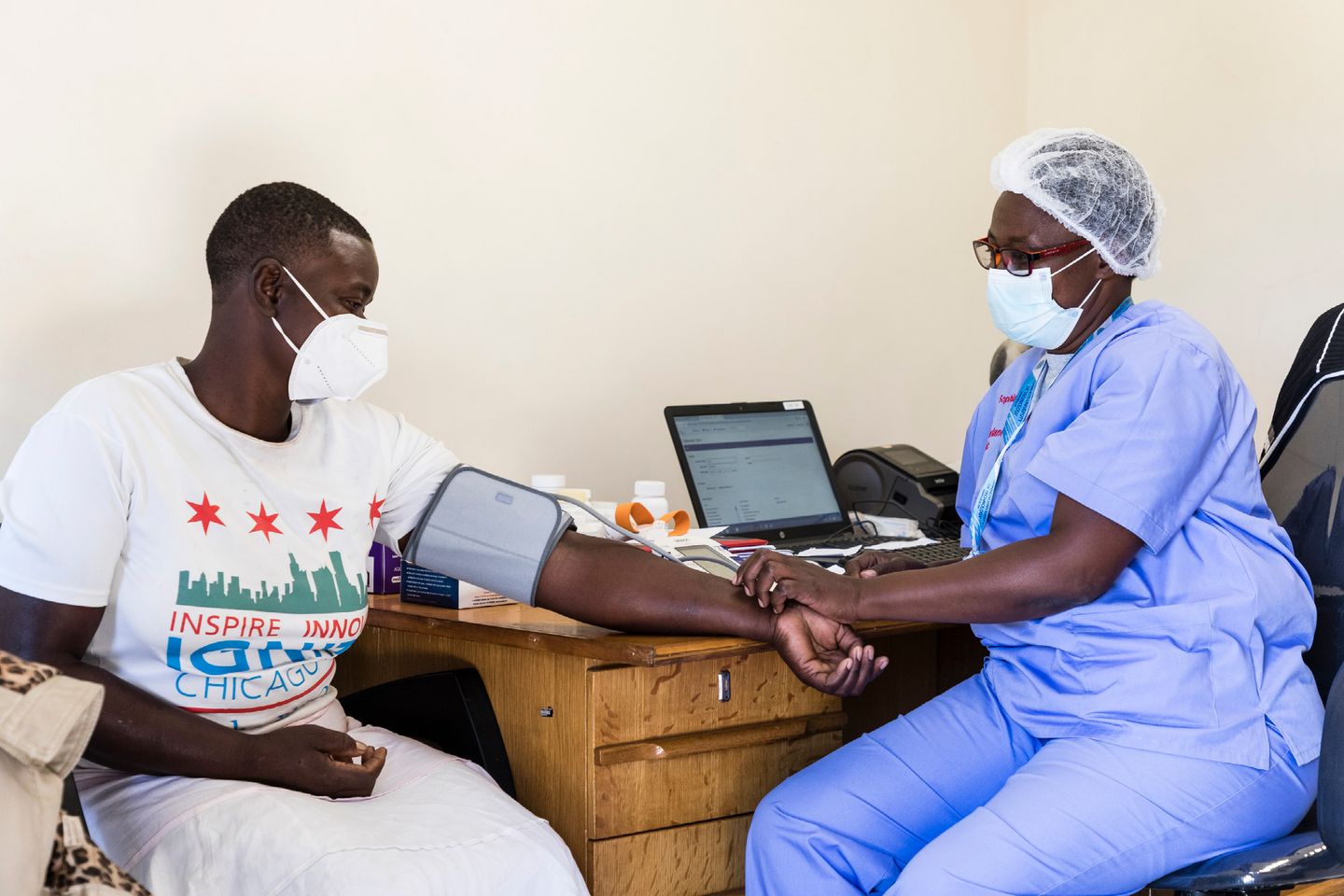There is still a great need for effective HIV treatment in Zimbabwe. According to UNAIDS figures of 2019, around 13 % of people between 15 and 49 are HIV-positive, with some 20,000 deaths and more than 30,000 new infections every year. For comparison: 421 people were diagnosed with HIV in Switzerland in 2019 according to the Federal Office of Public Health. Our Newlands Clinic continued to grow in 2020: at the end of December, it had 7,003 patients, almost 300 (+4 %) more than the year before. Around two-thirds are female, and just under a quarter is aged below 25.
Successful treatment despite the lockdown
Even though the pandemic posed major challenges for the clinic team (see pages 8 to 11), we were able to maintain a high standard of HIV treatment. Ninety-seven per cent of patients who have been treated with antiretroviral drugs at Newlands Clinic for at least six months have a suppressed viral load according to the UNAIDS criteria. This figure is higher for adults than for young people up to age 24 (98 % vs 93 %). For this reason, providing particularly close support to children and young people remains a key priority for the clinic team. The figures for patients lost to follow-up, and mortality, are also important indicators of treatment success. Only 51 patients (0.7 %) were lost to follow-up in 2020. The most frequent cause of death among the 77 patients who died (1.1 %) was cancer. Most of them only sought our help once the disease was too far advanced.
Identifying and treating sequelae in time
People with an HIV infection are at an elevated risk of getting cancer – especially cervical cancer among women – and opportunistic infections such as tuberculosis (TB). For this reason, TB prevention and regular check-ups to prevent cervical cancer are an integral part of care. Precancerous conditions of the cervix can be diagnosed and treated directly at our Women’s Health Centre. In the year under review, 219 of the 2,665 women screened required treatment, four of them suffering from cervical cancer. If possible, we also support patients diagnosed with cancer financially so that they can get medical help at a specialised clinic. We diagnose and treat other HPV-related diseases of the genital area and sexually transmitted infections on site at Newlands Clinic.
Psychosocial support also available remotely
The pandemic has created major difficulties for our patients, who already live in precarious circumstances. The lockdown made travelling to the clinic considerably more difficult for a lot of people, and many have lost their entire means of earning a living by selling goods or services. Children and young people were also particularly hard hit because schools closed in the second half of the year. Besides the danger of falling behind in their education, they were at a greater risk of falling victim to abuse and violence. In 2020 around 550 patients needed psychological support. Sessions took place either on site (with the necessary precautions) or by phone. We had to put group therapy on hold, and we won’t be able to complete the 2020 vocational skills training programme until 2021.
Please read more in our Annual Report 2020.
Annual Report: Getting through the pandemic with courage and creativity

